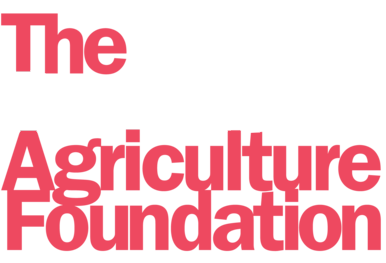Canadian Wildfires: Supporting Each Other Amidst Stress and Mental Health Challenges
The beauty of Canada's vast landscapes often comes with its fair share of challenges. From time to time, those in agriculture face nature's wrath in the form of wildfires. These devastating events pose a threat to our livelihoods and can take a toll on our mental wellbeing.
So how do we take care of our mental wellbeing during climate disasters? Here are just a few tips:
Acknowledge the Stress: First and foremost, it's essential to recognize that the challenges during wildfires are overwhelming. The fear of losing crops, livestock, and property can be incredibly stressful. It's okay to feel anxious or overwhelmed during such times. Remember, you are not alone in this struggle.
Reach Out for Support: One of the most important steps in dealing with the mental health impact of wildfires is seeking support. Connect with your community, fellow farmers, and ranchers facing similar challenges. Sharing experiences and emotions can provide a tremendous sense of relief and create a support network that understands the unique struggles you face.
You can also find support by finding agriculture resources here or connect to our peer-to-peer platform AgTalk powered by Togetherall.Prioritize Self Maintenance: During times of crisis, it's crucial to prioritize yourself. Pay attention to your physical and emotional wellbeing. Make sure you are getting enough sleep, eating nutritious meals, and engaging in regular exercise. Small acts of self-care, such as taking a walk in nature, enjoying a hobby, or spending time with loved ones, can significantly improve your mental state.
Stay Informed, but Limit Exposure: Staying informed about the progress of wildfires and relevant safety protocols is important, but excessive exposure to distressing news can further exacerbate anxiety. Choose reliable sources of information and set boundaries to protect your mental health. Consider designating specific times to catch up on updates, rather than constantly monitoring the situation.
Practice Mindfulness: In times of crisis, practicing mindfulness can help ground you and reduce stress. Take a moment each day to engage in deep breathing exercises, meditation, or simply focus on the present moment. Mindfulness allows you to find calm amidst the chaos and provides a renewed sense of clarity and resilience.
Seek Professional Help: If you find that your mental health is significantly impacted by the wildfires, do not hesitate to seek professional help. Reach out to mental health counsellors, therapists, or support helplines specialized in dealing with crisis situations. These professionals are equipped with the tools and knowledge to guide you through challenging times.
To find a resource that works for you, visit domore.ag.Communicate Your Needs: Don't hesitate to communicate your needs to your loved ones, friends, and community members. People often want to help but may not know how to support you effectively. Whether it's physical assistance, emotional support, or simply someone to talk to, expressing your needs can help others offer the right kind of help. Remember, you're not alone, and there are people who care and want to assist you.
As Canadian farmers and ranchers face the devastating effects of wildfires, it is crucial to prioritize mental health and support one another. Remember, you are not alone in this struggle, and together we can overcome these challenges. By acknowledging the stress, seeking support, prioritizing self-care, staying informed but limiting exposure, practicing mindfulness, and seeking professional help if needed, we can get it through it together.
